Russian President Vladimir Putin ordered Russian troops into eastern Ukraine’s two breakaway regions on Tuesday, saying the military force will “maintain peace,” while Western leaders worry it is the first step towards a major European conflict.
What does this mean for Russia, Ukraine, Europe, and the world? We asked our contributors at The Hub to weigh in.
We are witnessing the return of history
Rudyard Griffiths, Executive Director at The Hub
Putin’s recognition of the independence of two Russian-backed territories in eastern Ukraine is a genuinely significant geopolitical development.
This isn’t simply the latest reiteration of Moscow’s now decade-plus doctrine of occupying portions of former Soviet republics using “peacekeepers” to “protect the human rights” of Russian-speaking minorities.
Nor are Russian boots on the ground in Donbas and Luhansk a resolution of the larger Ukrainian conflict that preserves the status quo ante of European security as the likes of Italy, Germany, and Austria are telegraphing in their reluctance to punish Russia with sweeping sanctions.
The invasion (let’s please call it what it is) of Eastern Ukraine marks nothing less than the end of the historical era that began with the fall of the Berlin Wall. Specifically, the passing of this chapter of European history marks the expiration of the peace dividend that shaped so much of the post-Cold War world.
This dividend was the engine that galvanized the sustained globalization we have experienced in recent decades. It fueled and energized our multilateral institutions. It created the political and economic preconditions for an unprecedented exchange of people, goods, services, and ideas, not just in Europe but around the world. It allowed the majority of nations, Canada included, to focus almost exclusively on increasing common prosperity through mutual interdependence and trust. This era is now over.
Putin’s bald-faced rejection of the entire liberal international order—and its key tenant of national self-determination—through the use of hard military power signals our return to an international order defined by Great Power rivalries and shaped by the use of force.
Much of the resources, focus, and energies of developed societies in the West will have to be redirected from the project of globalization and its challenges (including climate change) to meet the practical and pressing concerns of national and regional security. Militaries and their hard power capacities will have to be rebuilt (outside the United States). Multilateralism will be discarded for hardnosed regionalism in trade, finance, and technology. Dominant powers will deploy a panoply of coercive tactics to shore up a world where small and so-called “middle powers are divided into blocs, the West versus Sino-Russia. We are witnessing, in real-time, on our social feeds and TV screens, the return of history; a sea-change whose consequences are as far-reaching as they are profound.
With this Russian incursion, the European security order has irrevocably changed
By Janice Gross Stein, professor at the Munk School of Global Affairs and Public Policy at the University of Toronto
Russia bookended the beginning and the end of the era of European security. The collapse of the Soviet Union in 1991 opened the door to the acceptance of a new norm throughout Europe of no unilateral change to the borders of sovereign states through the threat or use of force.
It also enabled the ill-advised expansion of NATO right up against Russia’s borders. President Vladimir Putin put the nail in the coffin of these norms of European security when he announced the recognition of the independence of the republics of Donetsk and Luhansk in the Donbas region of Ukraine and followed up by ordering Russian tanks to cross the border for “peacekeeping” in the two provinces.
The war began eight years ago when Russia armed the leaders of these republics and supported them with irregular forces and militias. In 2022, in a false flag operation that the U.S. anticipated, Putin claimed that they were the object of incessant Ukrainian attacks. Diplomatic recognition of the independence of these two provinces by Russia and the deployment of Russian forces severs additional territory from a sovereign Ukraine.
When Russian forces crossed the border into Ukraine, the European security order was irrevocably changed. The consensus on no forcible change of borders lies in tatters on the floor. Leaders of Estonia, Latvia, Lithuania, and Poland cannot but be alarmed by the aggrieved, angry, revisionist neighbour right on their borders. In his review of history, it remains unclear that Putin’s revisionism is restricted to the eastern part of Ukraine.
In the wake of the Russian invasion, German strategy is in shreds and the prospects of Nord Stream 2 are now grim. Europe wakes up to the bitter reality that they must now take the challenges of security seriously and invest in defence. And as unappealing as it is to President Emmanuel Macron of France, Europe clearly needs the United States.
The United States also finds itself in a new world. The long-predicted but slow-moving pivot to Asia, the Indo-Pacific strategy, and the focus on China will now inevitably be slowed by the pull of the undertow from a resurgent, revisionist Russia.
There are many losers in this tragic, aggressive, and regressive action by an angry Russia. Ukraine, first and foremost, that finds itself torn apart and now at least partly occupied. Russia that will find itself cut off from the rest of Europe for a decade. The United States that must now look eastward across the Atlantic as well as westward across the Pacific.
There is one clear winner in all of this. The People’s Republic of China. But even China does not condone the unilateral violation of the borders of a sovereign state.
This is a war that should not have happened. But it has. And in the process it has destroyed the last vestiges of the liberal international order.
This is not a challenge to post-war norms
William Thorsell, Distinguished Fellow at the Munk School of Global Affairs and Public Policy
Some influential Ukrainians within Ukraine and in the diaspora will quietly welcome Russia’s recognition of the Donbas republics.
The alternative was the Minsk Accords, which would have seen recognition of these Russian-peopled regions as quite autonomous provinces within Ukraine. Many Ukrainians saw this as a Fifth Column plan to ensure Russian influence on Ukraine from within, after the overthrow in 2014 of the elected Ukraine president from that region.
Donbas as provinces of Ukraine meant no European Union, no NATO in effect. Putin has just solved this problem for some patriotic Ukrainians: Ukraine can now be solely Ukrainian, unencumbered by the Russian minority within. And not: there remains the Russian majority without.
Minsk was Putin’s first choice perhaps—Donbas as a defining part of Ukraine. But Ukraine under Zelensky clearly rejected it. So Putin went to his second choice: Donbas as part of Russia in effect. He had to give a bit of ground here in recognizing the Donbas republics, his second choice.
But—as he managed in Crimea—this “Velvet Occupation” will add to his quiver in territory, and strengthen his hand against the liberal West and those in Ukraine wishing to embrace it. There are no effective means to oppose this Putin strategy: fait accompli again. And Ukraine is clearly in no position to embrace either the EU or NATO after this world-scale drama. Mission accomplished for Putin, despite the derailment of Minsk.
Minsk had risks to be sure but offered a pragmatic solution to the imbroglio. Germany and France tried to make it work: Ukraine vetoed it despite the significant economic value of the Donbas. So we have a moment of clarity in which Donbas (maybe even greater Donbas) is no longer part of Ukraine at all.
Meanwhile, Ukraine and the West will have to accept that Crimea is now back with Russia, where it arguably belongs. And now the Donbas. Fait accompli—we need to recognize this and move on. At the same time, we have effectively recognized that the EU and NATO are not part of Ukraine’s future.
Next? Subject to the next days’ events, the interests of Ukraine should focus on its internal affairs. It is the poorest country in Europe, despite its riches, and the third most corrupt after Russia and Azerbaijan. Like the rest of us, Ukraine needs to leave the Russian Donbas and Crimea behind, look in the mirror, be humble and work much harder on fixing its own house. We should expect that and demand it.
Many people will see all this as another erosion of post-war norms re: borders, democracy, sovereignty, and such. Those are important fundamentals and convenient. But this is not a basic challenge to post-war norms, created initially by NATO’s careless expansion into Eastern Europe and exploded in Iraq, just for two. I suggest we calm down on that front, and seek to understand the context, never the same, always essential.
As of tonight, there is one big job for Ukraine: Know Thyself. And for the rest of us too: Know Thyself.
Even as territorial lines are crossed, the bargaining will continue
Jon R. Lindsay, professor at Sam Nunn School of International Affairs at the Georgia Institute of Technology
The gray zone has darkened, but things are not quite black. For almost eight years, the Russian intervention in Ukraine smoldered somewhere between war and peace, marked by proxy wars and cyber attacks. Then in December, Russia radically changed course. As Russia mobilized troops and prepared for open war, the gray zone conflict transformed into a brinksmanship contest.
Now we have entered a new phase, as Russian ground forces have crossed the border. Yet, this is not the Blitzkrieg many expected, and which still might occur. While the incursion can be considered an invasion by almost any criteria, this invasion remains somewhat restrained.
A common assumption is that war begins when negotiation ends. Yet as Clausewitz reminds us, war itself is political negotiation, and there are many kinds of wars. Even as visible thresholds like Ukrainian territorial sovereignty are crossed, the bargaining process never ends.
Russia has been steadily moving up the ladder of escalation, and there are still many rungs to go. Somewhere far above on that ladder is direct combat with NATO forces or, God forbid, a nuclear exchange. But there are many possibilities in between. Considerable uncertainties remain about what Putin really wants and how much Ukraine and NATO are willing to pay to prevent him from getting it. The harrowing reality is that this new and dangerous phase is still a mutual conversation about how much worse it could be.
Much ink has been spilled in recent weeks debating whether or not Putin would go to war. Yet, Russia and Ukraine have already been at war in the shadows for many years. The real question has always been, and remains, not whether but how much.
The response to Russia could create worldwide domino effect
By Amal Attar-Guzman, content editor at The Hub
Although Vladimir Putin’s actions are being celebrated by separatists in Donetsk, Ukraine and its allies are seeing this as a territorial invasion of Ukraine, with the UN Security Council predicting an unprecedented humanitarian crisis if the situation further escalates.
While the historical basis that Putin is basing his intervention on is arguably loose and simplistic at best, the main point of contention is how NATO and Western allies respond to the situation. It could create a global domino effect.
In Asia, China has been itching to take over Taiwan for quite a while. While I previously argued that China invading Taiwan is highly unlikely in 2022 — and still believe that to be the case, it is evident that allies and foes are monitoring the situation in Ukraine closely. On one side, they are watching whether Western allies and the international community are dependable in terms of protecting state sovereignty. On the other side, they are watching from the sidelines for any misstep that they can use for their own benefit.
One area in the world that is not being talked about is Latin America. Russia and China have both had vested interests in the regions for quite some time through strong diplomatic relations to development projects and initiatives. Regarding Ukraine, Latin American leaders are showing their support. Venezuelan President Nicolas Maduro pledged military assistance to Russia in light of the situation in Ukraine.
Cuban President Miguel Diaz-Canal discussed a “strategic partnership” with Putin back in January when tensions were rising with Ukraine, and further deepened his country’s ties with Russia a couple of days ago. As of yesterday, Nicaraguan President Daniel Ortega stated his support for Putin’s actions, claiming that Ukraine’s entrance to NATO can be seen as a threat to Russian national security. This is a couple of days after Russia promised to continue military assistance in the Central American country.
In light of all this, Western nations will be prudent to factor in how the situation in Ukraine can cause a domino effect to other areas across the world, especially where Russia and China are concerned. It can either alleviate or prevent any opportunities for further escalations, or it can light a fuse that can’t be blown out quite so easily.
Western inaction to Russia’s aggression would delight China
By Joe Varner, an adjunct Scholar at West Point’s Modern War Institute
Very sadly, Russia is in the process of invading and likely dismembering or destroying a democratic state in Ukraine. Yesterday, after several weeks of fake provocations focused on developing a Russian justification for the invasion of Ukraine, Vladimir Putin announced recognition of the breakaway Donetsk and Luhansk regions of Ukrainian. Russia also announced that these territories were bigger than their boundaries would suggest and that Ukrainian troops were encroaching on their territory. True to form and other past so-called “frozen wars”, Russian combat troops were sent in as “peacekeepers”. Russia has some 150-175,000 soldiers in 11 armies within striking distance of Ukraine from the north, to the west, and to the south of that vulnerable country.
Yesterday as Russian armoured and mechanized forces drove into Donetsk and Luhansk, essentially annexing them from Kiev, others drove to the Ukrainian frontier and Russian airborne and amphibious forces loaded up equipment for what is likely a full-scale invasion of Ukraine. Russian military superiority in the air, at sea, and on the ground is not in question. Russia’s precision strike and cyber capabilities far outweigh those of Ukraine. Russian forces are also not leaving Belarus, even though they were scheduled to do so and are renting accommodations.
NATO and the EU have condemned Russia’s aggression and warned of a new Cold War. In response to Russian recognition of Donetsk and Luhansk, the UK announced targeted sanctions on Russian banks and members of Putin’s inner circle. The U.S. brought in a package of sanctions directed at businesses working with Donetsk and Luhansk. Germany announced it would not engage in further certification of the Nord Stream 2 pipeline from Russia and that it would be reassessing its energy security needs. Germany also suggested that it might send more reinforcements to Lithuania. The UN Security Council was called to discuss the matter but the result was not in doubt and it was a waste of time.
Vladimir Putin’s image of the Russian Empire and the Soviet Union was the backdrop to the Council discussions. At this point, other than sanctions, some weapons deliveries, economic aid, and well wishes, Ukraine is on its own to face the “Russian Bear”. Not since the dark days of the Cold War has the prospects for peace in Europe looked so grim. Russia has pushed back at NATO and the EU, who have so far given in to Russian aggression even as the U.S. warns that Russian intelligence kill teams have hit lists to dispose of Ukrainian officials and military and political leaders. Dictators like Vladimir Putin are ruthless murderers and all the sanctions and pleading in the world are not going to stop his drive for a new Russian Empire. He has sent hit teams around the world to kill his opponents with everything from nerve gas to radioactive tea.
Many people will say “so what?” In previous articles published by The Hub, we warned the world’s dictators are watching and know time is on their side. Iran is months away from nuclear weapons and their proxy militias are running amuck in the Middle East and the Persian Gulf. North Korea has tested more long-range missiles in the month of January than it did the previous year, and several were new systems. Lastly, China is watching Western inaction and the US..-led rules-based order fall apart. Genocide-bound Beijing is now weighing its long-held strategic objectives in the Western Pacific of taking Taiwan, the Pratas, Senkakus, and the Philippines’ offshore Islands through coercion of force of arms.
The price of doing next to nothing to defend and protect Ukraine is going to come home to roost. The problem for the West is that Taiwan is essential for Western Pacific security and this time we have to put up or shut up. You are dealing with a genocidal murder in President Xi, and seeing us cave to Russia would be to his pure delight. We are now well into the “Thucydides Trap” where an emerging great power threatens to displace an existing great power as a regional or international hegemon through war. Let’s hope the West can find the backbone to defend Taiwan.
Don’t believe Putin’s ‘Reichstag speech’
By Christopher Dummitt, professor of Canadian history at Trent University and host of the Canadian history podcast 1867 & All That
Tyrants cloak themselves in the guise of victimhood. Even after annexing Crimea and now sending troops into a foreign country, Putin adopts an aggrieved stance. What else was he to do? Beset by American aggression, NATO incursions, and Ukrainian insolence, there really is no other option but to invade a foreign country.
It is almost as if Putin has travelled back in time to the 1930s and bought himself a paint-by-numbers “How to Invade a Weaker Country” instruction booklet. The author? Why it’s a young Austrian artist by the name of Adolf Hitler.
Let’s remember a speech Hitler gave on 6 October to the Reichstag. This was after the German military had swept through Poland, massacring soldiers and civilians alike, following a plan Hitler had been desperate to carry out, all the while pretending he wanted peace.
Then, even as he was busy divvying up Poland with Stalin, Hitler addressed the German people to say that he had saved them. From what? From Polish aggression, of course.
He told Germans that their Polish neighbours, a country with a huge population and vast army, had planned to “crush” Germany. Hitler had stopped all of that. Yes, his army had bombarded Warsaw, killing women and children. But Hitler had tried to prevent all of this – asking the Polish generals to concede defeat. Was it Hitler’s fault that the Polish generals had not listened? All of this came after the Polish government had refused to deal with Germany’s entirely reasonable demands.
In that same Reichstag speech Hitler sent a message to Britain and France that despite all evidence to the contrary, he wanted peace – on his terms. He only sought Germany’s security. And only by guaranteeing its security could there be real peace.
As with Germany in 1939, so with Russia in 2022 – peace through aggression, and security through attack. The difference now primarily comes with not insignificant addition of nuclear weapons.
As ever, the way to deal with all bullies – especially cry-bullies of the Hitler and Putin type – is to stand firm. Speak the truth. Don’t back down.
Recommended for You
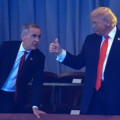
Mark Carney retracting support for Trump’s war in Iran could reveal rift in Liberal government: A timeline breakdown
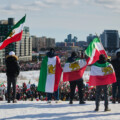
‘A mix of emotions’: Why Iranian-Canadians are now holding their collective breath
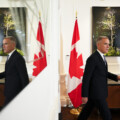
‘This is a mess’: Why is Mark Carney flip-flopping on the Iran war?
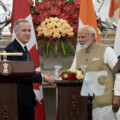
Carney courting India and China reflects Canada’s shrinking good options in Trump era, David Frum explains
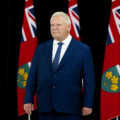
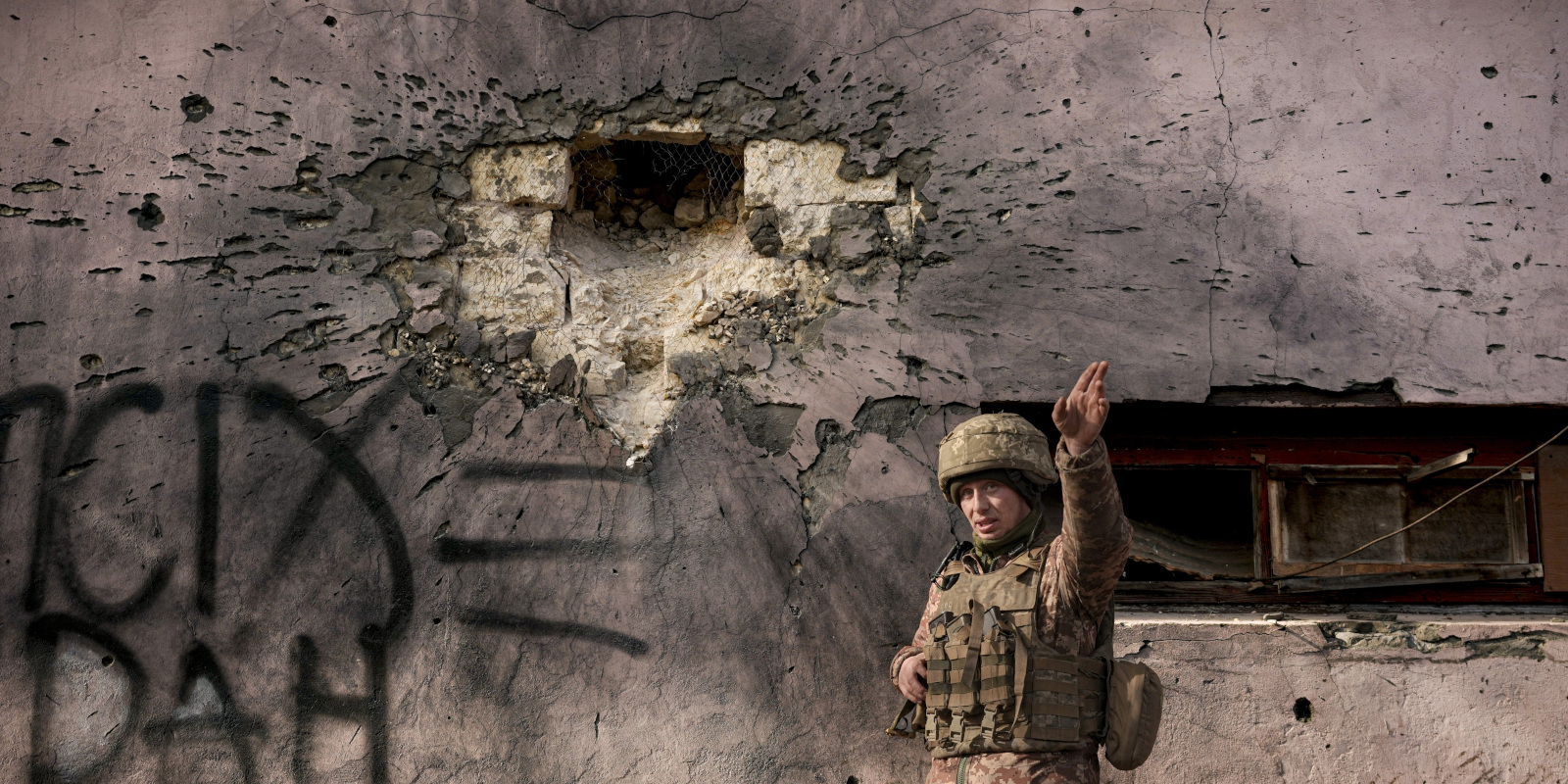
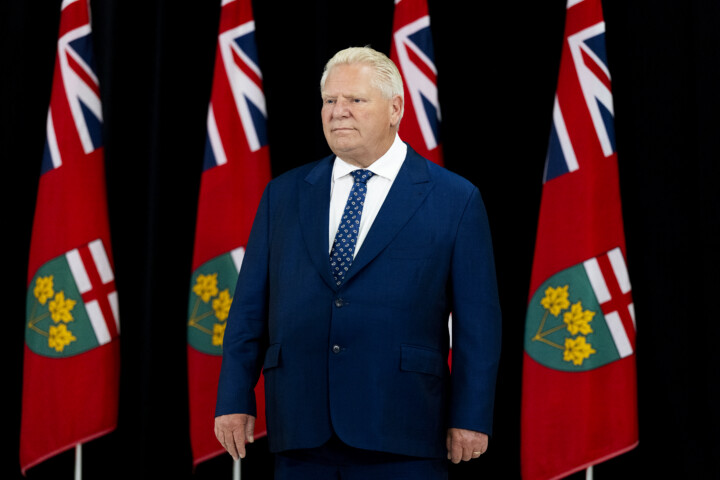

Comments (0)